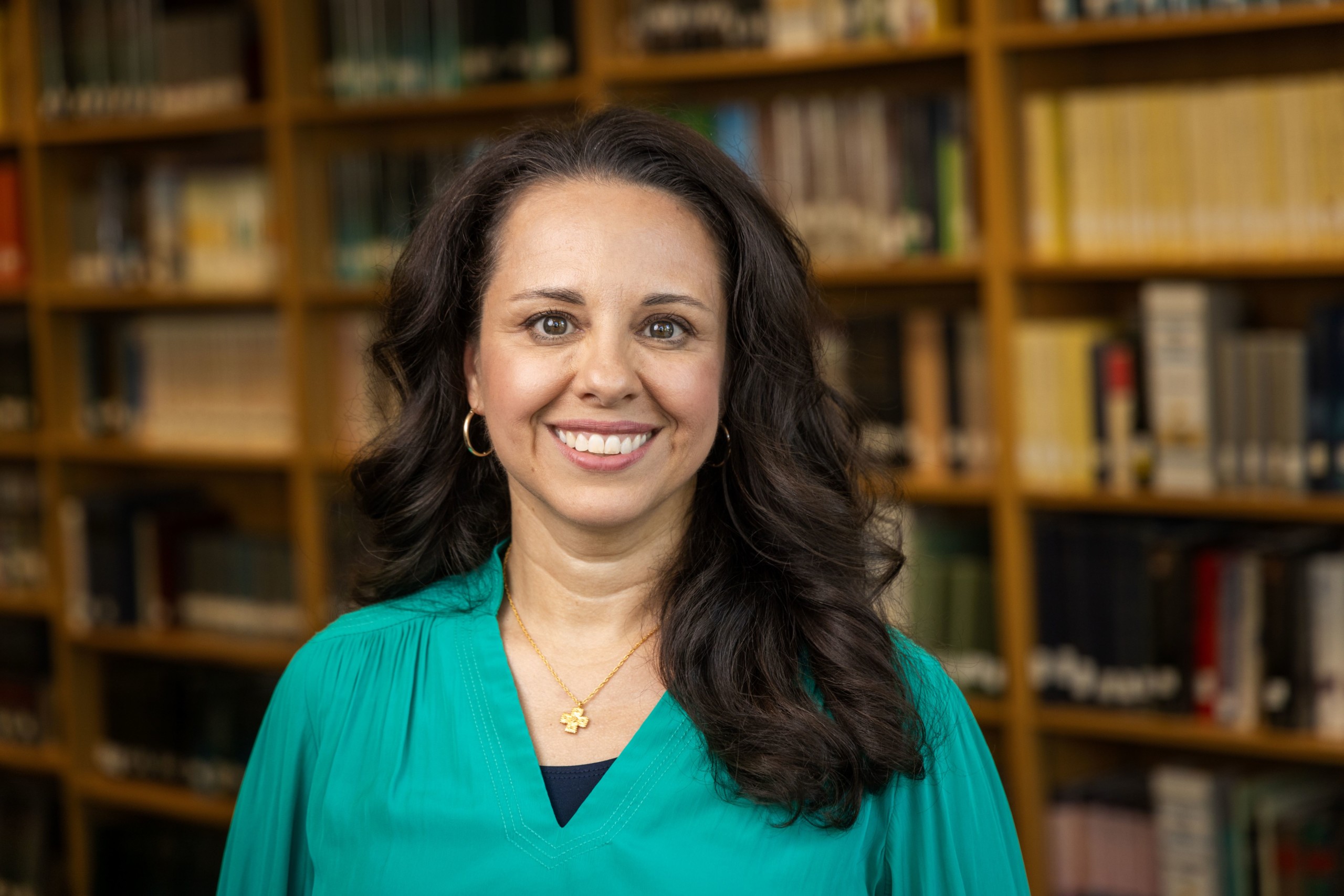
Dr. Melisa Ortiz Berry, adjunct professor in the School of Arts and Sciences at Bushnell University, teaches history courses and serves as a passionate leader in discipleship and ministry. Dr. Berry brings this same passion into the classroom, blending history and faith to engage her students in meaningful learning experiences. Alongside her academic credentials, which include multiple awards for her scholarly work, she is committed to her roles as a mentor, professor, and mother.
Her academic foundation is just as impressive as her teaching approach. She holds a Ph.D. in the History of Christianity from Claremont Graduate University, with a focus on Religion in North America and Christian Origins. Her academic journey also includes an M.Div. from Princeton Theological Seminary and a double major in Classical Greek and History from Loyola Marymount University. Over the years, Dr. Berry has built a rich career in academia, serving as a professor and mentor at institutions such as Azusa Pacific University and Princeton Theological Seminary.
In addition to her academic work, in 2006 she founded Crown of Life Discipleship Ministries (CLDM), a program developed to mentor women in church ministry. Through her initiative, “Women of the Word,” Dr. Berry provides theological, biblical, and practical training for women serving in ministry. She also hosts a daily live Bible reading and prayer session on Facebook.
We sat down with Dr. Berry to discuss her journey and how she integrates faith and history into her teaching. You can watch the full interview on Bushnell’s YouTube channel. Below, she shares her thoughts on what inspires her classroom approach, her views on the relationship between faith and learning, and advice for students at Bushnell.
What inspires your teaching style?
I get very excited and passionate about the things that I’m teaching and working on. I like to share that passion with my students. It’s important for me for them to understand that what they’re learning in the classroom isn’t just data, but a way of using their brains, seeing the world, and developing how they think. Their thoughts should be organized logically, using evidence to prove things and understand how to do that.
How do you view the relationship between faith and learning?
Faith in learning for me is sort of organic. We can delve into deeper issues of faith in learning by looking at history and how the people of God engaged with difficult topics at that time. This allows us to ask challenging questions of ourselves, seeking opportunities to tell faith stories within the content of my topic, which is often history.
Why is history important in your teaching?
History serves as the backdrop to everything we do in life. It provides context for how the United States came to be and how we have the Bible and understand our faith. It helps us understand who we are and why we do what we do. History also teaches us to think and communicate. A student who graduates with a history degree can go into law, politics, journalism, government, or theology. We learn as a way of thinking, not just through data points and dates, but through engagement and communication, which are useful skills in any career. Employers value these skills.
What advice do you have for students at Bushnell?
Students who come to Bushnell may or may not realize this, but to make the most of your time here, you need to take advantage of what Bushnell does best: caring for students as people and as souls. It’s a place where you can investigate who you are as a person and as a Christian. You can go to chapel, visit the counseling department, or talk to your professors. There are many mentoring opportunities here that you won’t find everywhere. You’re not just a number at Bushnell, so lean into that because at other universities or in the job market, you may not always find people who genuinely care about you.
How do you integrate service into your career?
Integrating service into my career means investing in my students. I don’t think service simply means doing community work, although Bushnell excels in that. I integrate service to Christ into my career by hosting students at my home for events and welcoming them into my family. For instance, my husband and I, who is also a professor [at Bushnell], took students to Israel [in 2023], which involved years of planning and was a special experience for all of us. For me, integrating service into my career is about investing in the souls and futures of my students and discussing their aspirations while praying for them.
Why did you choose to work at Bushnell University?
I’m only at Bushnell because of my faith. I chose to work at a Christian university where I can tell God’s stories in the middle of a history class and pray with students. The opportunity to integrate faith and learning and actively display my faith is why I’m here. Bushnell is a place where one can serve God, the community, and their students.
In her work as both a professor and mentor, Dr. Berry brings a unique blend of passion, faith, and expertise to her students at Bushnell University. Her commitment to nurturing students’ intellectual and spiritual growth is evident in the classroom and beyond. To learn more about the School of Arts and Sciences and explore the History program that she teaches in, visit www.bushnell.edu/history.